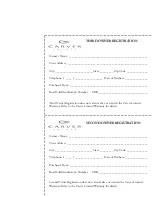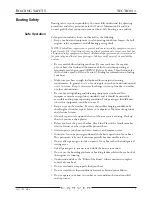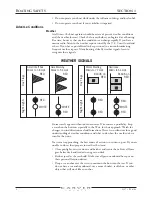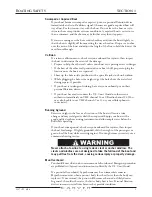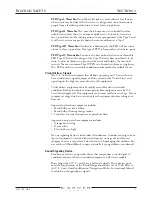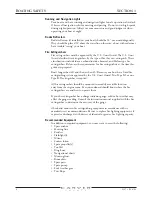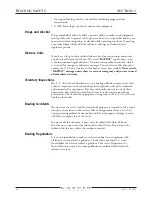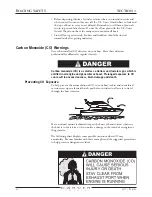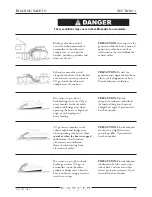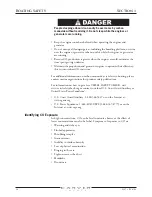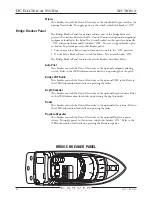
3327 • P2 6/06
9
BOATING SAFETY
SECTION 1
Owner’s Responsibilities
There are several areas you must have knowledge of to operate your boat in a
safe, responsible manner.
Safe Boating Courses
Your local U.S. Coast Guard Auxiliary and the U.S. Power Squadrons offer
comprehensive safe boating classes several times a year. You may contact the
Boat/U.S. Foundation at 1-800-336-BOAT (2628) or, in Virginia, at 1-800-
245-BOAT (2628). For a course schedule in your area you may also contact
your local U.S. Coast Guard Auxiliary or Power Squadron Flotilla for the time
and place of their next scheduled class.
Carver also recommends that you read
Chapman’s Piloting, Seamanship and
Small Boat Handling
for further information on how to handle your boat in
various situations.
Rules of the Road
Navigating a boat responsibly requires you to comply with a set of rules
intended to prevent accidents. Just as you assume other car drivers know what
they are doing, other boaters assume you know what you are doing.
As a responsible boater, you must comply with the marine traffic rules enforced
by the U.S. Coast Guard. There are two sets of rules: the United States Inland
Navigational Rules and the International Rules. The United States Inland
Rules apply to all vessels inside the demarcation lines separating inland and
international waters. The U.S. Coast Guard lists the traffic regulations in
its publication
Navigational Rules, International-Inland.
You can get a copy
from your local U.S. Coast Guard Unit or the United States Coast Guard
Headquarters, 1300 E. Street NW, Washington, D.C. 20226.
Other helpful publications available from the U.S. Coast Guard include
Aids to
Navigation
(U.S. Coast Guard pamphlet #123), which explains the significance
of various lights and buoys; the
Boating Safety Training Manual
and
Federal
Requirements For Recreational Boats.
Check with your local U.S. Coast Guard
station, your Carver Dealer, or a local marina about navigational aids unique to
your area.
Documentation
The owner of a boat registered with the U.S. Coast Guard is issued a Certificate
of Number. This certificate must be onboard whenever the boat is in use. State
registration is also required. If your boat has a VHF radio onboard, an FCC
license must also be displayed. Check with the U.S. Coast Guard or your state
regulatory agency to determine what other records are required on your boat.
In addition to required documents, it is strongly recommended that
you maintain the following logs. Log books are available from maritime
supply stores.
• A navigation log containing engine speeds, compass courses and time records,
which are essential for both cruising and maintenance purposes.
• A radio log, which is mandatory on vessels required to have a radio. A radio
log can be useful to record unusual events, especially for future litigation.
• A maintenance log to track the type and frequency of maintenance
procedures performed on your boat and its systems. Refer to Section 7 for
more information on maintaining your boat.
Summary of Contents for 380 SPORT
Page 1: ...HIN CDR _________________ 380 Sport Owner s Guide 2007 Version 1 ...
Page 2: ......
Page 4: ......
Page 6: ......
Page 8: ......
Page 28: ......
Page 40: ...28 3327 P2 6 06 DC ELECTRICAL SYSTEM SECTION 2 DC SCHEMATIC 3327 324 002 5 12 7 05 ...
Page 54: ...42 3327 P2 6 06 AC ELECTRICAL SYSTEMS SECTION 3 AC SCHEMATIC 3327 300 015 2 9 04 ...
Page 108: ......
Page 122: ......
Page 124: ...112 3327 P2 6 06 WARRANTY AND PARTS SECTION 9 Hatches ...
Page 129: ...3327 P2 6 06 117 WARRANTY AND PARTS SECTION 9 Bill of Material ...
Page 130: ......
Page 131: ...3327 P2 6 06 119 WARRANTY AND PARTS SECTION 9 Carver Limited Warranty ...





